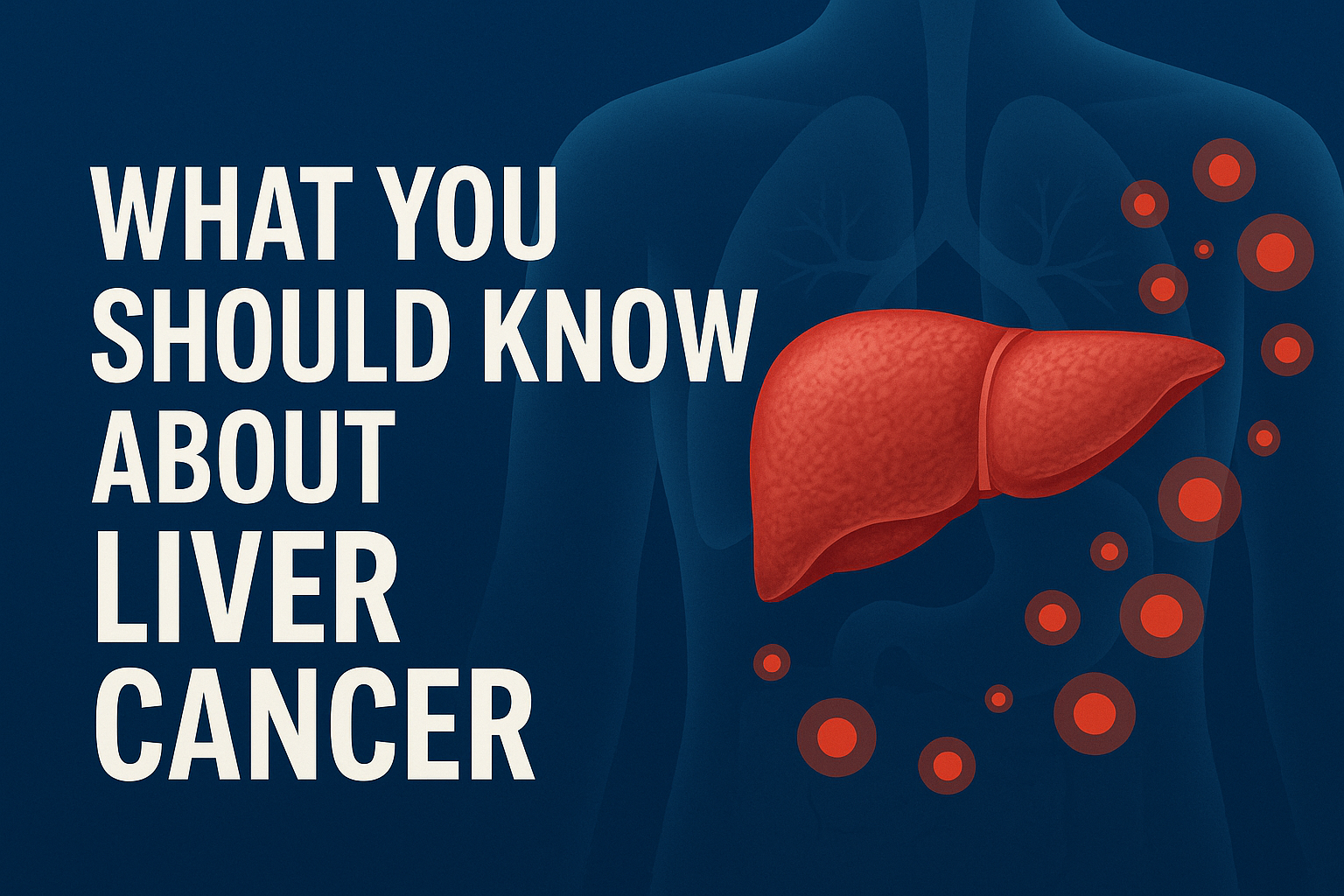Liver cancer is one of the fastest-growing causes of cancer-related deaths worldwide. Often detected in advanced stages, it’s critical to understand its symptoms, risk factors, and available treatments. With early detection and medical advances, liver cancer is increasingly manageable.
What Is Liver Cancer?
Liver cancer occurs when abnormal cells in the liver grow uncontrollably. It can be primary (originating in the liver) or secondary (spreading to the liver from other parts of the body).
Main types of liver cancer:
- Hepatocellular carcinoma (HCC): The most common type, usually linked to chronic liver diseases.
- Intrahepatic cholangiocarcinoma: A cancer of the bile ducts within the liver.
- Hepatoblastoma: A rare liver cancer that mostly affects children.
Early Symptoms of Liver Cancer
Liver cancer may not cause symptoms in early stages. When symptoms do appear, they often include:
- Unexplained weight loss
- Loss of appetite
- Upper abdominal pain
- Nausea and vomiting
- Jaundice (yellowing of skin and eyes)
- Swelling in the abdomen
- Fatigue and general weakness
Major Risk Factors
Several factors increase your risk of developing liver cancer:
- Chronic hepatitis B or C infection
- Cirrhosis (scarring of the liver)
- Excessive alcohol use
- Non-alcoholic fatty liver disease (NAFLD)
- Diabetes and obesity
- Family history of liver cancer
- Aflatoxin exposure (a toxin from certain molds)
How Is Liver Cancer Diagnosed?
Liver cancer diagnosis involves:
- Blood tests: Including alpha-fetoprotein (AFP) levels
- Imaging tests: Ultrasound, CT scan, MRI
- Liver biopsy: A sample of liver tissue is examined for cancer cells
- Liver function tests to assess damage and liver health
Staging and Prognosis
Liver cancer is staged based on tumor size, spread, and liver function. Staging helps doctors determine treatment plans and predict outcomes.
- Stage I: A single tumor, no blood vessel invasion
- Stage II: Multiple small tumors or one that has invaded a blood vessel
- Stage III-IV: Spread to other organs or lymph nodes
The prognosis varies. Early-stage liver cancer has better survival rates. The five-year survival rate for localized HCC is around 35%–50%.
Current Treatments for Liver Cancer in 2025
Treatment depends on the stage, location, and overall liver function:
- Surgical resection: Removing the tumor if liver function is good
- Liver transplant: Ideal for early-stage cancer with liver failure
- Ablation therapies: Radiofrequency or microwave ablation to destroy tumors
- Embolization: Blocking the tumor’s blood supply (TACE, TARE)
- Targeted therapy: Drugs that attack specific cancer pathways (e.g., sorafenib, lenvatinib)
- Immunotherapy: Checkpoint inhibitors and CAR-T cell therapy
- Radiation therapy: For patients who aren’t surgical candidates
Can Liver Cancer Be Prevented?
While not all cases are preventable, you can reduce your risk:
- Get vaccinated for hepatitis B
- Manage hepatitis C with antiviral treatment
- Limit alcohol consumption
- Maintain a healthy weight
- Control diabetes and blood sugar levels
- Avoid exposure to aflatoxins (in spoiled grains/nuts)
Living With Liver Cancer
A liver cancer diagnosis is life-changing, but support is available. Patients should work closely with a hepatologist and oncologist, maintain good nutrition, and prioritize emotional well-being. Support groups and counseling can be extremely beneficial.
Palliative care may also be an important component, especially for advanced stages. This focuses on relieving symptoms, managing pain, and maintaining dignity and comfort.
Research is ongoing, and clinical trials may offer access to cutting-edge therapies not widely available. Ask your care team about eligibility for any relevant trials.
Final Thoughts
Liver cancer is serious but treatable, especially when caught early. Understanding the risks, recognizing early signs, and seeking medical help promptly can dramatically improve outcomes.
Stay informed, get regular check-ups, and don’t ignore potential warning signs. Education, awareness, and prevention are key tools in the fight against liver cancer.
Related Articles You May Find Helpful:
- “How to Lower Your Risk of Liver Disease”
- “The Role of Hepatitis B Vaccination in Liver Cancer Prevention”
- “Understanding Targeted Therapy for Liver Cancer”
- “Navigating a Liver Cancer Diagnosis: A Patient’s Guide”
